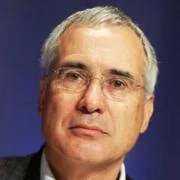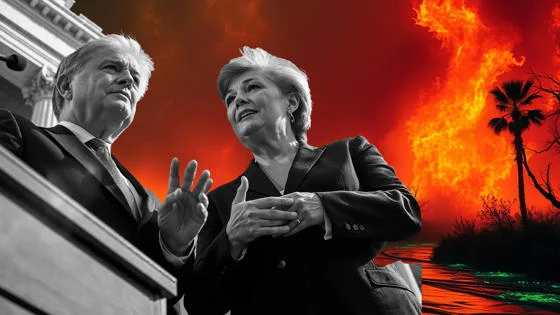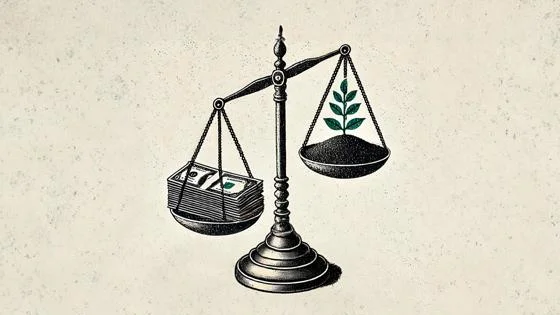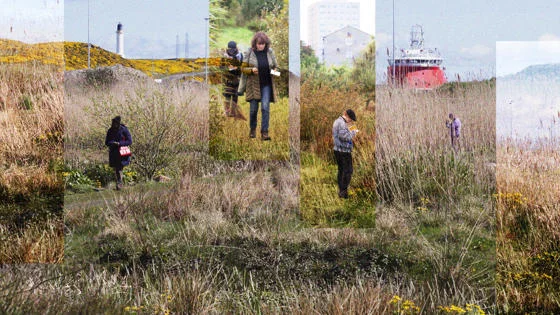Why climate action is the economic opportunity we must seize

Contents
- The climate science is tougher than in 2006 – but the tech is smarter
- The next two decades will be decisive for the world’s future: investment, the imperative, the opportunity, and the new growth story
- How to foster and finance investment for the climate transition and growth
- Why the UK must lead on climate action
Policies aimed at net-zero targets and other climate initiatives are often framed as necessities – things we must do, rather than opportunities or things we want to do. But what if climate action could drive innovation, boost productivity and, rather than proving a cost to society, bring about decades of prosperity and with it, greater opportunity for all?
This is the argument of The Growth Story of the 21st Century: the economics and opportunity of climate action (LSE Press), a new book by Professor Lord Nicholas Stern, IG Patel Professor of Economics and Government, and Chair of both the Grantham Research Institute on Climate Change and the Environment and the Global School of Sustainability at LSE.
We have a huge opportunity as a world to find a very different form of growth in both developed and developing countries.
The climate science is tougher than in 2006 – but the tech is smarter
Published in 2006, The Stern Review helped shape and drive the global conversation around sustainability by framing climate change not just as an environmental crisis but as an economic one. While Lord Stern’s message was described by some at the time as “scare-mongering”, over time this sentiment has become an increasingly fringe view.
It’s a point Lord Stern addresses directly. “The science is actually much worse than we thought at the time of The Stern Review, which is something I examine explicitly in the book,” he explains. "Each Assessment Review produced by the Intergovernmental Panel on Climate Change has been more worrying than the last. The dangers of tipping points that we associated back then with four degrees, for example, now look like dangers that are associated with a two or 2.5 degree rise in global temperature. Whilst we argued two decades ago that the risks were immense, it turns out that climate change is even more dangerous than we thought.”
The science has become still more alarming, but the past couple of decades have also seen huge technological advances that, if utilised effectively, offer real opportunities. Thus, whilst the science appears much worse every time we look, the technology appears much better. These developments, Lord Stern argues, place the world at a crossroads still more decisive than in previous decades. Provided the key strategic decisions are made now, with the necessary investments and structural change, he argues, the coming years could be marked not only by climate progress, but by economic growth and increased opportunities.
The next two decades will be decisive for the world’s future: investment, the imperative, the opportunity, and the new growth story
“If we are going to change and do things differently, we will have to invest. We have to invest in the new and in the clean; and we must accelerate strongly now,” he says.
“In the book, I challenge the view that climate action, both reducing emissions (mitigation) and building resilience (adaptation), should be seen as a cost. They constitute investments. Climate action will be the catalyst that will drive growth over the next decades.
“If we invest in the right technologies now, climate action will be a much more attractive story of growth than the dirty, destructive models of the past. It is the growth story of the 21st century. We must invest strongly in both mitigation and adaptation: the former avoids the unmanageable and the latter manages the unavoidable,” he says.
“The majority of the infrastructure that India will have by the mid-century will be built between now and then,” he says. “And similarly, for most parts of the developing world. If that infrastructure looks anything like the infrastructure of the past, then probably three degrees would be out of reach. That would be devastating. We have a huge opportunity as a world to find a very different form of growth in both developed and developing countries. And we have an intense urgency. That is what this book is about – the opportunity and the imperative.”
The opportunity story is particularly strong in emerging markets and developing economies.
How to foster and finance investment for the climate transition and growth
Some might baulk at the idea of investment at a time of economic weakness and a perception of limited resources. On the contrary, Lord Stern argues that now is the time to invest in the technologies of the future. And he stresses that investment today will lead to “very high returns", including “cheaper, more reliable energy; cities where you can move and breathe; greater resource efficiency; and much stronger health.
“In the book, I make the case that climate action should be seen as investment not cost. The investments must be made at scale and with urgency. My earlier life in the Treasury, as a public finance economist for many years in academic life, and as someone who has spent a professional lifetime studying the economics of growth and development, offers strong lessons here. We're going to need to borrow for some of this investment. And if we are to be able to borrow for public investment, we must fund current expenditure credibly and strongly. Further, we must focus on public investment which can enable private investment: that means in key parts of infrastructure, such as public transport.
“A very important part of the book describes the policies that can foster the private investments needed to start us strongly down the track we must follow, and crucially, how we can generate finance for those investments, both private and public. In this context, governments and development banks must work to share and reduce risk and bring down the cost of capital.”
Why the UK must lead on climate action
While global cooperation is essential, Lord Stern argues that individual nations –particularly those with influence – must lead. In particular, the UK has been a leader through the Climate Change Act of 2008 and its 2019 commitment to net zero by 2050 (the first G20 country to pass laws to do so). And it has cut emissions strongly since 1990, whilst achieving growth. If the UK wobbles now, many other countries may conclude that the task is too difficult.
“In Europe, the US, and China, infrastructure is well developed. But even here there are strong returns in productivity and health to making it cleaner and more efficient. But there's a huge opportunity for countries that are building their infrastructure, because they can leapfrog over the dirty and destructive phases. And as I said, the majority of India's infrastructure that it will have in the mid-century will be built between now and then, and that's even more true for much of the African continent. The opportunity story is particularly strong in emerging markets and developing economies.
“The richer countries have an obligation to support climate action and investment in the developing world, because of their past history of emissions which have made progress in the developing world more difficult, as climate is now more hostile. I think in most moral codes, you'd say that if you’ve made somebody's life much more difficult and there's a way out for them, then you have a duty to help. Many approaches to moral philosophy embrace a right to fulfilment or a right to development. Past emissions infringe that right.”
Lord Stern also highlights the fact that the geography of emissions is changing, pointing out that the cumulative emissions of China and Russia are now expected to exceed those of the United States in the next two or three years.
“This approach in terms of a right to development and the infringement caused by emissions underlines the notion of mutual responsibility and the need to think seriously about how the richer countries can help in the financing of the investments that are now necessary. In the later stages of the book, I show how that financial support can be generated, particularly through the role of the multilateral development banks and financial institutions, particularly in relation to their collaboration with the private sector. They can help partner with governments both to strengthen their investment environment and mobilise domestic resources, including by improving public revenues. And they can reduce risk and bring down the cost-of-capital for both private and public sectors with the right kind of financial instruments, including guarantees.”
The UK, Lord Stern believes, has a strong reputation for forward-thinking environmental and development policy – one he hopes the country will continue to embrace. “It’s very important that all countries act together. It is the sum total of greenhouse gases in the atmosphere that shapes global warming. The science sees a kilogram of CO2 from Johannesburg, Cairo, London or New York as equivalent,” he says.
“The UK is of particular importance because, as I have stressed, the UK started early and was seen as a good model. If we drop away now, the rest of the world could take that as a sign to slow down and wait and see. And waiting and seeing is really dangerous. So, the UK really matters as an example. But it also matters as an international player. The UK had a very good COP26 in Glasgow in 2021, just four years ago. If we back off, it sends really bad signals.
“As a significant player on the international stage, the UK has both the opportunity and the responsibility to lead,” he concludes.
If governments can seize this moment, as Lord Stern’s book sets out, the coming decades could signal the start of a climate recovery.
Professor Lord Nicholas Stern was speaking to Jess Winterstein, Deputy Head of Media Relations at LSE




